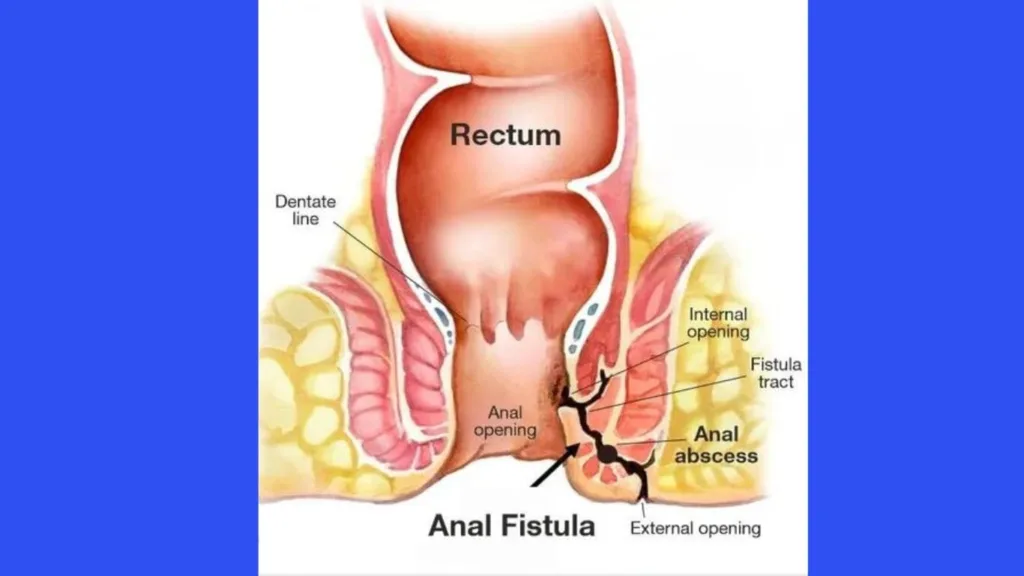
We explore comprehensive information on anal fistula pictures covering symptoms, causes, prevention, and homeopathic treatment. Discover expert insights and FAQs on managing anal fistulas for a healthier life.
Introduction: Anal Fistula Pictures
Table of Contents
Anal fistulas can be challenging, but understanding their symptoms, causes, prevention methods, and homeopathic treatment options can empower individuals to manage their condition effectively. In this article, we delve into these aspects, providing valuable insights and expert guidance.
Anal fistula 10 symptoms
Here are 10 symptoms associated with anal fistula:
- Persistent Anal Pain:
Individuals with anal fistulas often experience ongoing pain around the anal region, which can vary in intensity. - Discomfort During Bowel Movements:
Pain or discomfort may intensify during bowel movements, making the act of passing stool distressing. - Swelling Around the Anus:
Swelling and inflammation may be noticeable around the anus, indicating the presence of an anal fistula. - Anal Discharge:
Discharge, which may be pus-like or bloody, is a common symptom of anal fistulas and should not be ignored. - Skin Irritation and Itching:
The skin around the anus may become irritated and itchy due to the presence of a fistula. - Fever:
In some cases, individuals may experience fever, accompanied by chills, as the body responds to the infection associated with the fistula. - Constipation or Diarrhea:
Changes in bowel habits, such as constipation or diarrhea, can be indicative of underlying issues, including a fistula. - Visible Pimple or Bump:
A small, painful lump or pimple near the anus may be a visible sign of an anal fistula, especially if it persists. - Fatigue:
The body’s response to infection can lead to fatigue and a general feeling of being unwell. - Difficulty Sitting:
Pain and discomfort may make sitting for prolonged periods challenging, affecting daily activities.
If you suspect you may have an anal fistula or are experiencing these symptoms, it is crucial to seek medical attention promptly for an accurate diagnosis and appropriate treatment.
Causes
Here are 10 common causes of anal fistula:
- Untreated Anal Abscess:
Anal abscesses, if left untreated, can lead to the formation of anal fistulas. The abscess is an accumulation of pus in the anal region. - Crohn’s Disease:
Inflammatory bowel diseases like Crohn’s disease can contribute to the development of fistula due to chronic inflammation in the digestive tract. - Infections:
Infections in the anal glands or surrounding tissues can result in the formation of anal fistulas, particularly when not promptly treated. - Sexually Transmitted Infections (STIs):
Certain STIs, such as syphilis or herpes, can cause infections in the anal area, potentially leading to fistula formation. - Trauma or Injury:
Injury or trauma to the anal region, including from childbirth or anal surgery, may increase the risk of a fistula. - Diverticular Disease:
Diverticula, small pouches that can form in the walls of the intestines, may become infected, contributing to the development of anal fistulas. - Colon Cancer:
Though rare, colon cancer can be associated with the development of fistulas, particularly if the tumor affects the anal region. - Tuberculosis:
In regions where tuberculosis is prevalent, fistula can result from the infection spreading to the anal glands. - HIV/AIDS:
Immunocompromised individuals, such as those with HIV/AIDS, may be more susceptible to infections leading to anal fistulas. - Genetic Predisposition:
Some individuals may have a genetic predisposition to conditions that increase the likelihood of anal fistula development.
It’s essential to consult with a healthcare professional for a thorough evaluation if you suspect a fistula or are experiencing symptoms associated with it. Recognizing and resolving the root cause is vital for successful treatment and preventing future occurrences.

Prevention of Anal Fistulas
Here are 10 effective ways to prevent fistula:
- Maintain Good Anal Hygiene:
Practice gentle cleaning of the anal area after bowel movements, using mild soap and water. Avoid harsh or irritating hygiene products. - Adopt a High-Fiber Diet:
Include fiber-rich foods like fruits, vegetables, and whole grains in your diet to promote regular bowel movements and prevent constipation. - Stay Hydrated:
Drinking an adequate amount of water helps maintain bowel regularity, reducing the risk of conditions that can lead to fistulas. - Avoid Prolonged Sitting:
Take breaks and avoid prolonged periods of sitting, as this can contribute to pressure on the anal region and increase the risk of fistulas. - Manage Underlying Health Conditions:
If you have conditions like inflammatory bowel disease (IBD) or diabetes, work with your healthcare provider to manage them effectively, reducing the risk of complications. - Regular Exercise:
Engage in regular physical activity to promote overall health and prevent a sedentary lifestyle, which can contribute to anal issues. - Treat Anal Abscesses Promptly:
Seek medical attention if you notice symptoms of anal abscesses, as prompt treatment can prevent their progression into fistulas. - Avoid Straining During Bowel Movements:
Straining during bowel movements can contribute to the development of anal issues. Maintain a relaxed posture and avoid excessive pushing. - Practice Safe Sex:
Protect yourself from sexually transmitted infections (STIs) by practicing safe sex, as some STIs can lead to anal infections and fistula formation. - Regular Health Check-ups:
Schedule regular check-ups with your healthcare provider to monitor and address any potential health concerns early on.
Incorporating these preventive measures into your lifestyle can significantly reduce the risk of developing fistula. If you experience any symptoms or have concerns about your anal health, consult with a healthcare professional for personalized guidance and care.
Homeopathic Remedies
Here are 10 homeopathic Medicines that are commonly used for treating anal fistulas, along with associated symptoms:
- Aesculus Hippocastanum:
- Symptoms: Painful, blind piles with backache and a sensation of fullness in the rectum. Sharp shooting pain in the anal region.
- Silicea:
- Symptoms: Fistulas with thin, offensive discharge. Pain worsens during cold weather. Helpful in promoting the expulsion of foreign bodies or pus.
- Myristica Sebifera:
- Symptoms: Useful in treating anal abscesses that may lead to fistulas. Facilitates the spontaneous opening and drainage of abscesses.
- Calcarea Sulphurica:
- Symptoms: Fistulas with yellow, thick, and lumpy discharge. May be used for cases with slow healing and recurrent abscess formation.
- Hepar Sulphuris Calcareum:
- Symptoms: Fistulas with intense pain and sensitivity. Pus is present, and the area is highly sensitive to touch and cold air.
- Silicea Terra:
- Symptoms: Chronic fistulas with thin discharge of offensive pus. Fistulas that are slow to heal and may be associated with underlying chronic conditions.
- Calendula Officinalis:
- Symptoms: Supports the healing of fistulas, especially those with open wounds. Has antiseptic properties that aid in preventing infections.
- Graphites:
- Symptoms: Fistulas with thick, honey-like discharge. May be beneficial in cases where the skin surrounding the fistula is dry and cracked.
- Sulphur:
- Symptoms: Fistulas with burning pain and offensive discharge. Individuals requiring Sulphur often experience heat and aggravation at night.
- Nitricum Acidum:
- Symptoms: Fistulas with sharp, shooting pains. Presence of fissures and ulcers in the anal region. Discharge may be bloody or offensive.
It’s crucial to consult with a qualified homeopathic practitioner for individualized treatment. Homeopathic remedies are selected based on the totality of symptoms, and the correct remedy is chosen to match the patient’s unique presentation. Self-prescription is not recommended, and professional guidance ensures the most effective and safe treatment for anal fistulas.
FAQs (Anal Fistula Pictures)
Q: Can anal fistulas heal on their own? Anal fistulas rarely heal without intervention. Timely medical attention is crucial to prevent complications and promote healing.
Q: Is surgery the only treatment option for anal fistulas? Surgery is a common treatment, but homeopathic remedies and lifestyle modifications can complement medical interventions.
Q: Can anal fistulas recur after treatment? Yes, recurrence is possible. Following preventive measures and post-treatment care reduces the risk of recurrence.
Q: What dietary changes can help prevent anal fistulas? A high-fiber diet promotes bowel regularity, reducing the likelihood of conditions leading to anal fistulas.
Q: Are there any natural remedies for managing anal fistula symptoms? Homeopathic remedies like Calendula and Hepar Sulph can help manage symptoms. Consult a homeopathic practitioner for personalized recommendations.
Q: How can one maintain anal hygiene to prevent fistulas? Practicing proper anal hygiene, including gentle cleaning and avoiding harsh soaps, helps prevent infections and potential fistula development.
Conclusion
In conclusion, a comprehensive understanding of anal fistula pictures are crucial for effective management. From recognizing symptoms to exploring preventive measures and embracing homeopathic treatment options, individuals can take charge of their health. Timely intervention, coupled with a holistic approach, empowers individuals to lead a life free from the challenges posed by anal fistulas.




